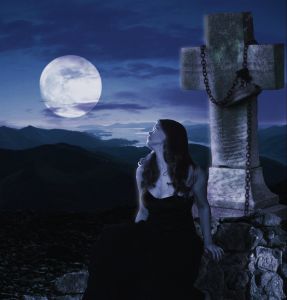We’ve talked about the importance of keeping our stories believable, but the fantasy genre (and all its subgenres) require certain aspects to be unrealistic.
Character types and plot points involving dragons, superheroes, vampires, etc. are all beyond the reality of our world. What does that mean for the reader?
A few weeks ago, my friend Wendy Sparrow tweeted a link to an interesting post on MSNBC. The article (no longer available) claimed there would always be haters of Twilight because some people can’t enjoy fantasy.
That’s an interesting thought. Many people will readily read non-fiction, but never touch a fiction book. The study cited in the article explained:
“People who were comfortable with fantasy tended to be more absorbed by what they read and saw. They also tended to have an emotional reaction. Many said they felt good after reading the narratives or looking at the paintings.
Another interesting feature of the fantasy prone people was that even when they were confronted with a realistic narrative or painting, they inserted fantastical elements when they mulled things over. “
I thought this study was fascinating. It touches on our ability to daydream, empathize, project, and have a rich imagination.
What causes the differences? Are some less empathetic? Less imaginative? Do some have difficulty stepping into someone else’s shoes? Is it due to brain wiring or socialization?
The study makes me wonder where those on the Autism/Asperger’s Syndrome scale fall in relation to these abilities. Can someone unable to decipher social cues understand the purpose of fiction—embedding ourselves in someone else’s life? Or do those on the scale still have a rich imagination, but it’s focused differently?
In first grade, I remember telling a classmate she’d enjoy stories more if she turned the book into a movie in her head while she read. She wasn’t able to do so. Was that because she was still struggling to learn to read? Or is there a brain difference, even at that young age?
Even the scientists don’t have the answers. As the article went on to say:
“Webster [the study’s co-author] isn’t sure why it is that some people aren’t comfortable with suspending the rules of reality so they can lose themselves in a fantasy story. That’s a subject for future research he says.”
I love stuff like this because brain function is so interesting. This recognition of the unknown encourages me embrace the weird and unnatural. I write paranormal stories for a reason, and those are the stories I most enjoy reading as well.
I love the world-building of urban fantasy and paranormal romance, and I love being wrapped up in a world that is not quite this one. Historical romance is my second favorite genre for those same reasons—world-building and escaping to another world, in the case of historical romance, the past.
It’s difficult for me to imagine that some people aren’t able to escape in a book like I can. Do they find other ways to escape, or do they remain in practical-mode their whole lives?
On the other hand, if there are brain differences, maybe this explains why some think romance novels are “evil.” Someone incapable of understanding fantasy might believe readers think the stories are realistic and are setting themselves up for disappointment in real relationships. *smile*
No matter the cause, this is yet more proof that a book will never be for everyone. Some literary agents work only with non-fiction books, so this is not a reader vs. non-reader issue.
Rather, some people are more willing to let authors take the lead in dictating the characters to care about, the dialogue to overhear, the setting details to notice, the emotions to feel, etc. While others don’t want to immerse themselves in something not real. So sometimes, whether someone enjoys a book is out of the author’s hands.
Do you (or someone you know) not enjoy fiction? Do you have insight into the questions this study brings up? If you do enjoy fiction, are some genres too unrealistic for you? Why do you think that is? How would you rate your imagination and tendency for daydreaming? Does your brain create a movie in your mind while you read?

